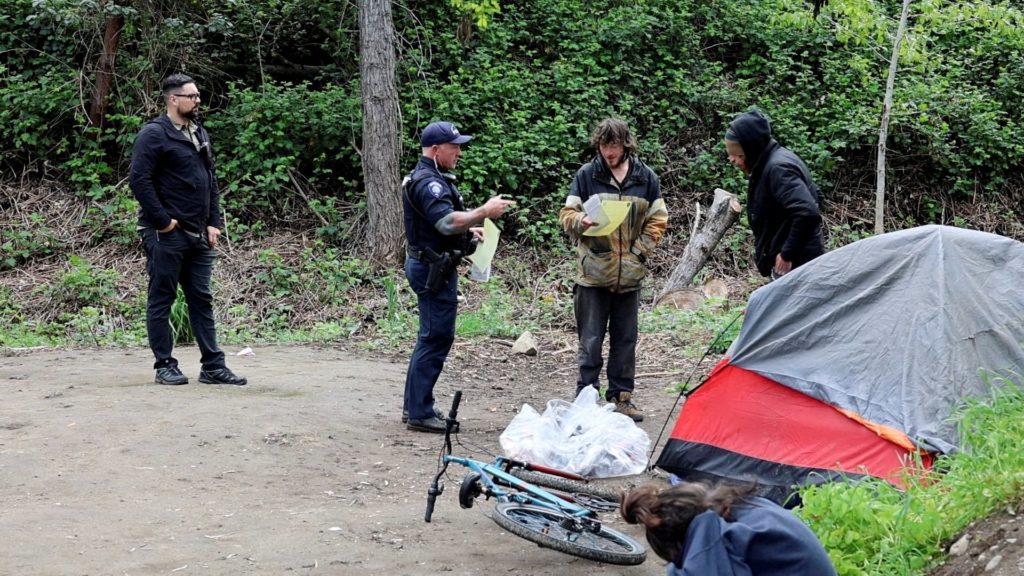The Supreme Court June 28 rejected a constitutional challenge to an ordinance adopted by Grants Pass, Oregon, prohibiting public camping within city limits that critics said unfairly punished people who are experiencing homelessness.
In a 6-3 vote, the court ruled in favor of the city of Grants Pass, rejecting an argument that the ordinance ran afoul of the Constitution's Eighth Amendment, which prohibits cruel and unusual punishment. The ruling overturned a 2022 decision by the 9th U.S. Circuit Court of Appeals and will in effect permit the city to enforce the ordinance.
Writing for the majority opinion, Justice Neil Gorsuch said while homelessness is "complex," and so is policy addressing it, the Eighth Amendment "does not authorize federal judges to wrest those rights and responsibilities from the American people and in their place dictate this Nation's homelessness policy."
In a dissenting opinion, Justice Sonia Sotomayor argued in favor of the claim that the ordinance violated the Eighth Amendment, arguing that "the Constitution provides a baseline of rights for all Americans rich and poor, housed and unhoused."
"This Court must safeguard those rights even when, and perhaps especially when, doing so is uncomfortable or unpopular," she said.
In a statement, Metropolitan Archbishop Borys A. Gudziak of the Ukrainian Catholic Archeparchy of Philadelphia said, "Policies that criminalize homelessness are a direct contradiction of our call to shelter those experiencing homelessness and care for those in need."
"Criminalizing (the) homeless is not the response to caring for those in need," added Archbishop Gudziak, chairman of the U.S. bishops' Committee on Domestic Justice and Human Development. "This decision fails to affirm the inherent dignity of a person, which is properly recognized by the constitution. Having to sleep in public with a blanket is the definition of being homeless.
"Ticketing and arresting people for it is a counterproductive approach to the problem of homelessness," he said. "Instead of punishing the most vulnerable among us, government should help provide shelter and economic and social programs that uphold and enhance the dignity of homeless persons. Such action would offer real opportunities for a better life and to remedy the deeper causes of homelessness."
The USCCB filed an amicus curiae brief in this case in favor of the challengers.
In a statement, the National Homelessness Law Center called the ruling "profoundly disappointing" and argued the court decided that the U.S. Constitution "does not protect homeless people against cruel and unusual punishment, even when they have no choice to sleep in public using things like blankets or pillows."

